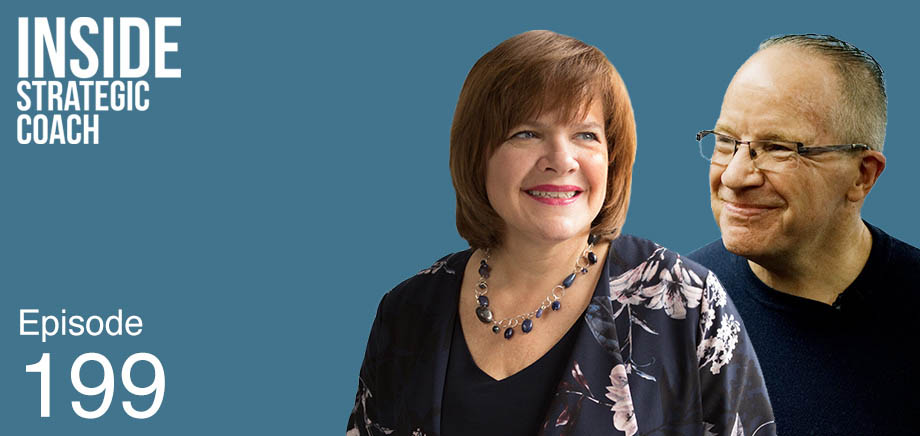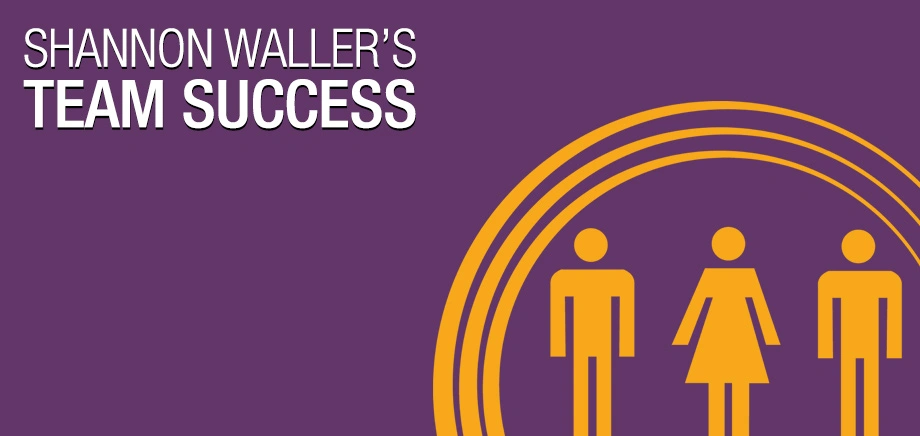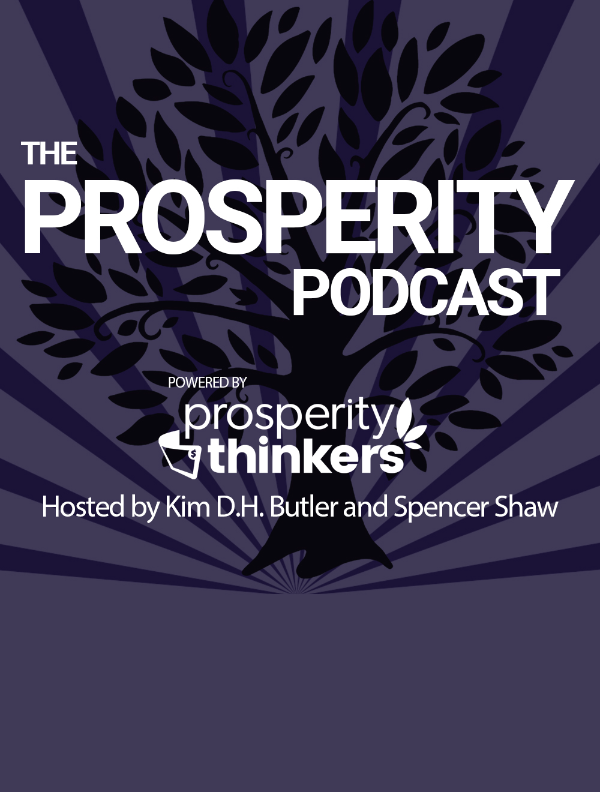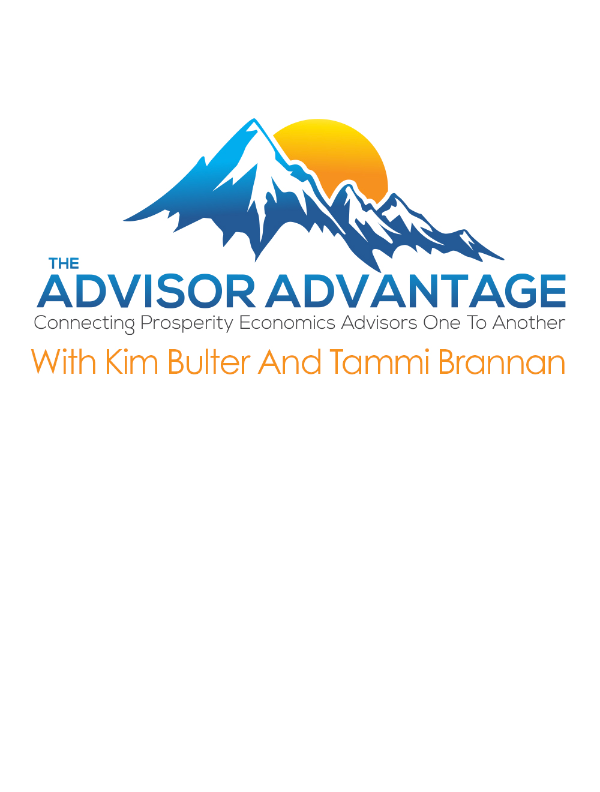Three Rules That Give Entrepreneurs A Friction-Free Future
March 19, 2024
Hosted By
 Dan Sullivan
Dan Sullivan
 Shannon Waller
Shannon Waller
When things need to get done, it doesn’t mean that you, as the entrepreneur, need to do them yourself. In fact, for the best kinds of business growth and business success, you need to do as little as possible. In this episode, business coaches Dan Sullivan and Shannon Waller share the three rules for having a friction-free future.
Here’s some of what you’ll learn in this episode:
- The way to achieve more by actually doing less.
- Why you need to be clear about what you want to be doing.
- How to determine the minimum you need to do for a goal to be achieved.
- Why things getting done without your doing them yourself means you’re growing.
Show Notes:
Strategic Coach has a lot of tools for creating teamwork where other people do work that you don't like doing.
For every task, there’s someone who’s great at it, loves doing it, and finds it energizing to do.
There are times in your past where you’ve done a lot, but someone else would have done it if you’d done nothing.
Friction is where you’re moving, but you’re being resisted by forces.
When a new thing has to be done, ask yourself three questions: Is there any way this can be achieved by me doing nothing? What’s the minimum I have to do for this to be achieved? Is there anyone else who can do my minimum?
The more you stick to the three rules, the more gets achieved by things you instigate.
Rather than having pride about the things that get done, some entrepreneurs have pride about doing the things that get things done.
An entrepreneur is only required for the activities they love doing.
Resources:
Who Not How by Dan Sullivan and Dr. Benjamin Hardy
Article: Your Productivity At Its Best With This Guaranteed Hack
Episode Transcript
Shannon Waller: Hi, Shannon Waller here with Dan Sullivan on Inside Strategic Coach. Dan, we're going to have some fun today talking about your three friction-free rules for getting things done. I know for me, I find it entertaining and it's kind of remarkable just how well they work. So please tell us, what are your three friction-free rules?
Dan Sullivan: Yeah. Well, you know, I'm like anyone else. I'm presented with challenges and there's things that have to be done to move forward. And what I've learned over the years, because in Coach, we have a lot of tools for creating teamwork where other people do work that you don't like doing. We have a concept called Who Not How. You have a goal, you're clear about the goal, you're excited about the goal, but you're not excited about you doing the "How" that gets it, so you say, well, who's the "Who" who can do my "How"? So my three rules are kind of like extensions of the Who Not How concept, which was a big seller. We have a massively bestseller book called Who Not How but we have a lot of tools around who does what where the person who's doing it loves doing it and they're great at it. They find it energizing to do it.
You know, I've been in the workplace for close to 60 years. More than that, if I go back to teenage years, I've been there. And as I've gone along, I've really narrowed down the particular activities that I like doing. I like doing what we're doing here, Shannon. I like writing little books, but the biggest thing is I love creating thinking tools for our Strategic Coach Program that can also be utilized by our team backstage. And I have podcasts. So whenever there's a new thing to be done, to be achieved, and I'm presented with it, where right now it seems that I'm going to have to do it, I ask myself three questions. These are my three rules for having a friction-free future, because friction is where you're moving, but you're being resisted by forces. So the first rule that I have, I look at it and I say, is there any way that this can be achieved by me doing nothing?
Shannon Waller: Me doing nothing.
Dan Sullivan: Yeah. Is there any way that this can be achieved by me doing nothing? There have been things in my past that I actually did a lot, but if I had done nothing, somebody would have done it.
Shannon Waller: Okay.
Dan Sullivan: Okay, so I've got that experience. I'm not just creating bubbles here. I actually have some very vivid experiences where I should not have done anything.
Shannon Waller: Oh my God, I'm sure all of us do, Dan. That's a really good point.
Dan Sullivan: Yeah, and it still would have been achieved or the need for it would have gone away. Then, I say, no, most things require that I do something. So my second question is, what's the minimum I have to do for this to be achieved? And usually, you know, it's pretty- I have to do this so that somebody else can get started or, you know, it's always a series of steps that achieve anything.
Shannon Waller: Which usually, Dan, just to add to this, usually starts with you communicating very clearly what it is that you want, a.k.a. an Impact Filter or Certainty/Uncertainty.
Dan Sullivan: Mostly Fast Filter.
Shannon Waller: One of our tools, yeah.
Dan Sullivan: One of our tools. So that's the second. And the third question is, is there anyone else who can do my minimum? So I end up not having to do it at all.
Shannon Waller: See, go back to one.
Dan Sullivan: And the more I've stuck to these three rules, the more has been achieved of things that I instigated, that I launched with an idea or I launched with a communication, but then I was free of the actual activity and then I could move on to something else. So more and more as I don't do anything or I do the minimum or I get someone else to do the minimum, then the more things that I actually get achieved.
Shannon Waller: Mm hm. There are a couple of things I find really insightful. I mean, at the surface level, it looks fun and entertaining.
Dan Sullivan: It has the added value of being kind of funny.
Shannon Waller: And it's like, ooh, how can I do as little as possible and get the most done? But you're very clear on what it is that you do wanna be doing, where, as I like to say, the "Who" is you. But the thing I also really appreciate about this is, it's not about you, it's not about your ego, it's about getting stuff done. And if I see traps that people get into, they're like, oh, I have to do this. And this could be the business owner, this could be a team leader, this could be a team member, and they get trapped into "I have to be the one doing the doing." And they lose sight of the goal. They lose sight of getting stuff done. This keeps you out of so much friction, so much tension. And in fact, really taps into other people's, as we like to call it, Unique Ability. So there's so much wisdom underneath this fun, entertaining way of talking about it.
Dan Sullivan: Yeah. And I think it's a leftover when an entrepreneur first started his or her business. And quite frankly, everything that needed to get done, they had to do it. But then it gets hardwired, and they say, well, I'm always the one who has to be doing the most. Rather than having pride about the things that get done, they have their pride about them doing the things that get things done. See, if something gets done and I really did nothing, I'm happier about that than if I had to do a lot to get something done. You know, because that's growth. That means I've got teamwork. That means I'm using technology. That means I have enough money to pay someone else to do it. Those are all indicators that I'm really growing. Me doing just as much now at almost 80 years old as I was doing when I started coaching at 30 years old, me still doing all those same things doesn't seem to me like a winning lifetime.
Shannon Waller: I love this thought. Like, you doing less, especially with the things that you don't wanna do or shouldn't be doing—"shouldn't" in quotes—it actually really represents growth. And you continuing to do the things you've always done out of habit or hardwiring as you said, actually it represents a lack of growth. That is such a good thought for entrepreneurs.
Dan Sullivan: It's like you're on a treadmill. A lot of activity but no progress.
Shannon Waller: 100%. Yeah, which is interesting. There's a distinction you made with regard to one of our concepts, tools called Focus Days, where we used to say that the day is for productivity, but then you changed it to profitability. So let's talk about that, because I think it feeds in really beautifully to this idea.
Dan Sullivan: Well, productivity for what? Well, make money. Well, make money for what? And they said, well, so that we can pay for everything. And I said, just pay for everything? What else? And they said, well, I can keep some. Ah, you can keep some. After you've paid all the bills, you can keep some. How much do you want to keep? Well, as much as possible. Ah. What if you could achieve more and more keeping and you paid all your bills, and you keep more and more, but you didn't have to do any of the work to get there? And they said, I wouldn't feel happy with that. And I said, hmm. Well, let me ask you this. If you did a lot of work and there was no profit, would you feel happy? Well, I'd feel like I'm really involved in- I said, you require a serious mindset change.
Shannon Waller: Well, Dan, this goes back to what we talked about in our last podcast about thinking tools, is that is a much more bureaucratic, corporate way of looking at things. That is not an entrepreneurial approach. We talk about, how do you minimize the time and effort and maximize the results? That's the point of being an entrepreneur, so there's profit left over, not to just do the time and effort and go, look what I did. You're missing the boat on that one.
Dan Sullivan: We have a great company project right now, and we're doing this podcast in November of 2023, and in May of 2024, we're having our first big Coach Conference we call CoachCon, and we're going to have a thousand of our Strategic Coach clients. We got great speakers. It's going to be two days. It's going to be in Nashville.
Shannon Waller: Two parties.
Dan Sullivan: Two parties. That was my contribution. Not one party, but two parties. Anyway. And so far, my entire contribution to this entire project, and it's three or four months in, has been two hours to write an introduction to a special book that we're going to be creating. I wrote the introduction. And then you interviewed me on it, and that was another hour of my time. And then I took about 15 minutes to inform them that one party in two days is not sufficient. You need to have two parties. And so they created a second party. And I said, now, Cathy Davis, who's one of our great, great team members, it was her idea. And she spearheaded the whole thing. I didn't even know about it until it was already approved by everybody who approves things in the Strategic Coach, because I'm not the person who approves things. And I got finished with the introduction. I said, now, is this going to require any more of my time before I go to Nashville? And she says, well, you do have to give the opening talk. And I said, OK. Is there anything else I'm gonna have to do over the two days? And she says, well, you have to lead a panel discussion, one of the panel discussions. I said, is there anything else I have to do? And she said, no. Okay, I'm holding you to it. But when it happens, I am so incredibly pleased about the amazing teamwork and the amazing leadership that we've created in our company that I don't even know about. I see these phenomenal results happening.
Shannon Waller: Well, and Dan, it's that mindset that I think is embedded in this, in your three rules, which is, it doesn't have to be about what Dan does. It has to be about the result. And in fact, the less you have to do and the bigger the result and the impact, it actually represents a ton of growth and success on your part because it means that you have the teamwork, you have the technology, you have the amazing "Whos," the leadership is there, the decision making is there, the resources are there to make this incredible thing happen with just a tiny little investment from you compared to other people. So, to have that represent growth rather than anything else is very, very cool.
Dan Sullivan: Yeah, and it's friction-free. I'm only required where I actually love doing the activity. I talked to Cathy Davis, who organized it, and I said, you're worried about this? And she says, yeah, yeah, I am worried, you know, that we get off to a good start, I'm worried about this, I'm worried about that. And I says, good, between the two of us, one of us had to worry. I said, I'm not worried at all. I'm going to arrive, I'm going to enjoy it, and I'm not going to worry about it. You know, people said, well, you just don't like work. I said, I work just as many hours almost 80 years old as I worked at 50 years old. It's just that all my hours working are things that I love doing. And they have much more impact. Every action I take, everything I achieve now has way, way more impact than it did 30 years ago, and that I measure. What's the impact of this? Same amount of time working, 10 times greater impact, 100 times greater impact.
Shannon Waller: So Dan, the word that's kind of screaming in my head right now is leadership. Like this is great, great leadership. You're not getting in the way of your team. You're not doing stuff that is not as impactful for the business. You're focused on impact. You're focused on growth. You're focused on value creation. And it also just leaves so much room for other people to do that as well. It's a very open, spacious approach to running a business.
Dan Sullivan: Yeah. I never want to get in the way of someone else's learning and growth.
Shannon Waller: Or Unique Ability, either.
Dan Sullivan: I don't want to be an obstacle in other people's path of growing.
Shannon Waller: So Dan, if someone wants to implement these three rules for themselves, if this is a new training for their nervous system, which I think it would be, number one is, ask yourself, can this be accomplished or achieved with me doing nothing? Rule number one. Rule number two. Rules are in charge. What's the minimum I have to do for this to be achieved? And I think my favorite's number three. Is there anyone else who can do the minimum?
Dan Sullivan: My minimum.
Shannon Waller: Is there anyone else who can do my minimum?
Dan Sullivan: So that I go back, that it gets achieved without me doing anything.
Shannon Waller: That's just genius. I could never remember rule number three, so I'm glad we're talking about that. And then kind of see what happens. It will give you an incredibly fast read on the "Whos" you have around you, the technology, how much time, and then you've got a baseline where you can keep working yourself out of processes that are not the things that you love doing.
Dan Sullivan: Yeah, and I say there's possibly a fourth rule is that all along, since you're minimizing as much as possible your own involvement, is the project or the result even worth doing? Because what happens is, when people get committed, they have so much investment in doing it that even though after a certain point it may not even be worth doing, they're still committing a 100 times because they've committed so much to do it. And I'm always checking in, you know, is this really worth doing? And then I say, yeah, it really is worth doing, and it's really worth getting it done, and I think it's got big impact when it gets done. And I reassure myself then, everything. But I'm still going to try to get away without doing anything.
Shannon Waller: This is the most anti-bureaucratic approach to getting things done I have ever heard.
Dan Sullivan: Yeah, we have a concept in the Program, are you in The Time-and-Effort Economy where you get paid for your time and effort? Or are you in The Results Economy where you get rewarded for your results?
Shannon Waller: And this is 100% Results Economy thinking. Fantastic. Dan, thank you. This is fun, insightful, and challenging all at the same time. And I can't wait to hear our feedback when people go to put this into play for themselves. So, thank you.
Dan Sullivan: Yeah. And having talked it through, I still think it's funny.
Shannon Waller: Me too. Love it. Thanks so much, Dan.
Dan Sullivan: Thank you.
Related Content
The Impact Filter
Dan Sullivan’s #1 Thinking Tool
Are you tired of feeling overwhelmed by your goals? The Impact Filter™ is a powerful planning tool that can help you find clarity and focus. It’s a thinking process that filters out everything except the impact you want to have, and it’s the same tool that Dan Sullivan uses in every meeting.







